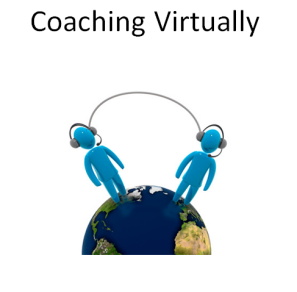
The following is a coaching man from one of our books The Coaching Conversation Series. A coaching map depicts the step by step process down to the exact question, activity, and learning project manager can use to facilitate coaching specific to a particular topic. I hope this helps:
Challenge / Performance Area:
- Being a Great Teammate
Suggested Strategy:
- Define and Coach: by setting a definition that all parties are aware of, you can base your coaching conversation on the discussion around that definition and the expectations are set ahead of time. The additional value is that the definition comes from the team themselves which ultimately erodes disagreement later on.
- The strategy is to build awareness for the whole team in a group coaching session. The objective is to facilitate the define and coach strategy with members of the team not only helping define what a great team and teammate is, but also the actions that support the definition.
Suggested Group Activity:
- Ask people to pair up in groups of two.
- After people are paired up ask each team of two to come up with a specific definition of what a great team and teammate is. Give the teams roughly 5 to 7 minutes to do so.
- Go around the room and ask each team to share their definition and write the definitions that are shared or parts of the definitions shared up on a whiteboard or flipchart. Once all the teams have shared summarize as best you can the definitions into one solid definition asking for feedback as you write it on the whiteboard or flipchart ultimately coming to a consolidated definition. Once the definition is up in the whiteboard and this may take some time ask people on your team for confirmation if this is the definition were going to utilize going forward. Once confirmation is attained unanimously is time to go on to the next step potentially the most important step.
- Ask each team to come up with two “specific” actions that everybody needs to take to support the definition of being a good teammate as well as the definition of what is good teamwork. Notice the word specific-it is imperative that people are not general or conceptual, rather they must provide specific actions or things they must do on an individual basis as teammates to support the definitions. This should get the team thinking creatively and with depth.
- After 5 to 7 minutes have the teams share their actions and write those underneath the consolidated definition that everybody came agreed to. Once all the sharing is completed asked the group if there is anything that you would take off the list but does the list ultimately support the definitions is the key question. Once this is agreed to turn this information into a document and distribute back to the team for accountability and visibility objectives.
Suggested Strategy Review:
- Once the definitions have been attained as well as the actions it is wise to categorize each action into the tier of learning or at a minimum notate each action with the tier of learning such as knowledge (K), skill (S), and behavioral (B).
- If you see a list that has knowledge set up teach back sessions, if you see parts of the list with skill you need to facilitate practice sessions, and if you see behavioral notations those are things that need to be practiced and ultimately reinforced with positive feedback to build confidence.
- In order to develop positive teamwork and the behaviors associated with the definition going forward additional sessions must be scheduled using a learning project to build accountability for the this behaviors to shift in the right direction. It is imperative that this is not a one session activity rather a series of sessions that build upon one another.
Suggested Questions During The Group Activity:
- When I say the phrase “good teammate”, what definition does that bring to mind?
- What actions could you take to ensure that you successfully exhibit that definition as a teammate?
- How will the actions we’ve listed help us work more effectively together?
- Going around the room what is one action each one of you are committed to using starting tomorrow morning to help foster greater teamwork?
- Assuming we leverage these actions going forward on a consistent basis what you think the team might look like 90 days from now from a positive perspective?
Additional Suggested Activities:
- Create a list of situations where teamwork if fostered more positively and cooperatively would have a better impact in the business.
- Whiteboard Coaching: Write on the left side of the board how the employee thinks their peers would currently describe their ability to be a good teammate. Then on the right side of the board, write down what they think the ideal teammate looks like. Erase the left side of the board and write down the steps that the employee thinks are necessary to become the teammate described on the right side of the board.
Suggested Learning Projects:
- Come back with three examples of where you demonstrated a specific action from the definition that supported being a great teammate.
- Ask the team to come back with one example of where they specifically observed a fellow teammate exhibiting great teamwork and with what specific action and to be prepared to share it at the next group coaching session.
- Ask team members to come back with their favorite sports team of all time whether it’s professional or college or even a used sports team and what they did to exhibit great teamwork. This is a form of observational coaching but it also gets them thinking about the value in the attributes of great teamwork.
- Ask team members to share one to two specific examples of where a fellow teammate exhibited great teamwork and what they specifically did. It is imperative we also build awareness of the reception of great teamwork versus just providing great teamwork. This will help build upon itself and provide even greater visibility going forward.
Supplemental Coaching Strategies:
- Non-Verbal Coaching: write a person a note and leave it on their desk when you notice them taking action in being a good teammate based on the definition that you discussed in their coaching session. Be specific in describing what they did and why it was appreciated.
- Purchase the book My Iceberg is Melting by John Kotter. It’s a book about a penguin community in the story goes to the element of teamwork and what people are willing to do to support one another. It’s an easy read and something that could easily be done between group coaching sessions to further foster the thought process and behavioral shift to being a good team and teammate.
- Ask teammates to journal every single day one thing they’ve actually done that exhibited an action that supported the definitions of great teamwork and being a great teammate. By journaling you’re asking people to bring other senses into play and truly be accountable to support the movement of great teamwork.
Want More Info On Coaching Maps? CLICK HERE





.jpg)